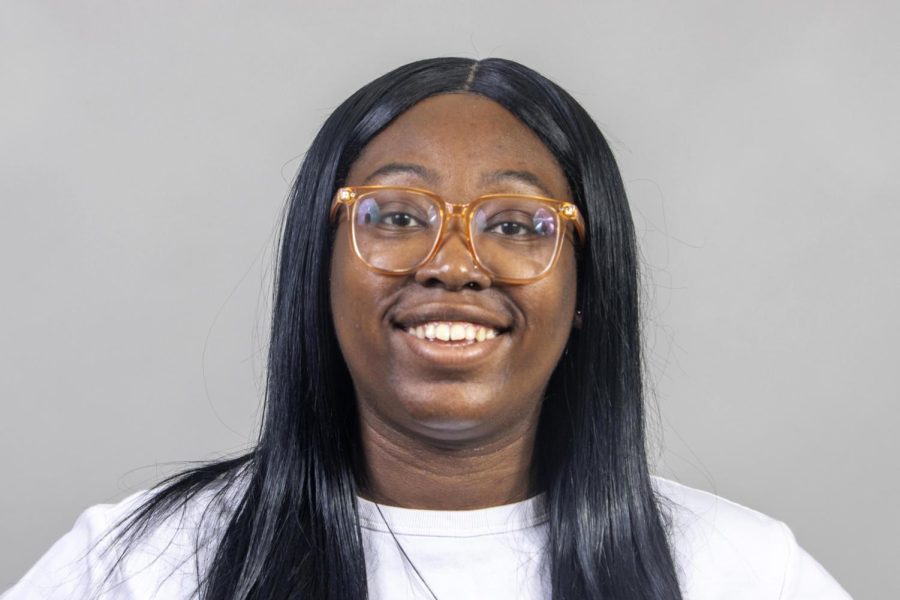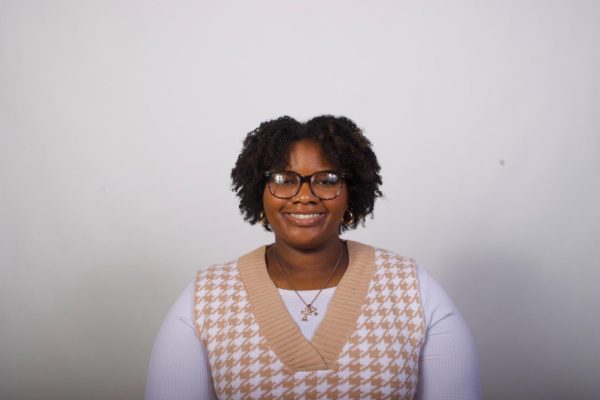COLUMN: How heavy are our words?
Kyla Moton is a junior English major and can be reached at 217-581-2812.
November 3, 2022
Throughout my time in college, I have encountered many different people. Meeting new people and learning about life experiences that are different from mine has been an eye opening experience.
Not everyone grew up or was raised the way that we were. I feel that it’s hard for us to realize this because we are accustomed to certain beliefs and experiences that we don’t realize that other people may not be used to the way that we operate.
I say all of this to say that we tend to prematurely judge people based on what we believe or were taught. Is it simply part of our nature to judge based on what we are told or what we see? I think it is.
We judge people without even knowing it. We see people walking down the street, we may say things to ourselves about their hair, the clothes they’re wearing, the way they walk, etc.
It’s not necessarily a bad thing, as long as we aren’t actively degrading or putting someone down for these choices. Everyone doesn’t do this to be mean, some people are genuinely shocked to know that people operate in a way different from them.
The thing about it, though, is that we must come to terms with the fact that not everyone has the same beliefs or moral systems. For example, politics is a great topic to discuss when talking about judgement.
Election season always brings out different beliefs in people, which tends to spark debates across social media and real life conversations. These debates on political issues divide families and friendships, and some with good reason.
Some of the beliefs that politicians exude are more about civil rights, which have become political issues unfortunately.
The lives of real people are behind the beliefs and laws that politicians put into place. Think about how it feels to have your rights being placed into a political debate instead of a debate about basic human rights.
We saw it in the pushback during the Breonna Taylor case. Republican politicians, such as Ohio senate candidate J.D. Vance, went against the “mainstream” story of Taylor’s murder case and said that her death is justified because Taylor’s boyfriend was shooting at the police.
But when looking at the circumstances of the situation at hand, Taylor did not deserve to lose her life. The loss of any life is devastating, especially seeing that Breonna Taylor had a multitude of people that loved and admired her.
Social media reinforced this idea that Breonna Taylor’s death was justified, and her family and close friends were highly upset at the way people were trying to twist the events of the night her murder took place to make it seem like she was in the wrong.
It shouldn’t have mattered if drugs were involved, if her boyfriend shot at the police, or if she had previous run-ins with the law, she was not doing anything wrong in the moment and should not have lost her life.
I say all of this to say that we must do better when we speak to people. The impact that our words have is so detrimental to how we make a person feel.
If we are constantly putting people down for who they are or how they choose to express themselves, then people will continue to have a negative perception of us.
If these are not your intentions, then it would be essential to start choosing your words wisely, because you never know what those words could mean to someone.
Kyla Moton is a junior English/creative writing major. She can be reached at [email protected] or 217-581-2812.
















































